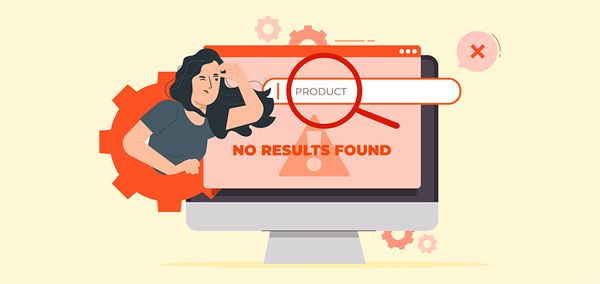Why Does Having a Blog on My eCommerce Store Matter

In this digital age online presence matters a lot for any type of business. For an eCommerce business, it is always important to make an impactful digital presence to grab the attraction of customers. In the world of digital marketing, writing blogs and posting them on the website of a particular company are mandatory things to remain steady in this competitive market.
Here in this blog we will indulge in the world of eCommerce blogs and discuss why it is important to write exact and effective blogs on ecommerce stores.
Benefits of Having a Blog for eCommerce Store

Before we start the journey of setting up a successful eCommerce blog for your business, let’s check the benefits of operating a blog for eCommerce store.
Leveraging a blog for your eCommerce store not only provides numerous benefits but also serves as a dynamic platform for engaging with your audience on a deeper level. Apart from that, by consistently delivering valuable content, you not only attract potential customers but also foster a sense of community and trust around your brand. Now, let’s check these benefits in detail.
Boost Search Engine Optimization (SEO)
eCommerce is an ever-evolving industry that is continuously changing its form and nature due to the advent of new technologies and processes. However, it is important to upload fresh and relevant blogs on specific topics with appropriate keywords to gain organic traffic and higher rankings for your eCommerce store.
Establish Brand Authority
The eCommerce blogs should have relevant tips, insights, and industry knowledge that should be related to the products and the services. This is how customers can get the proper idea about your company and can have trust in it as well. Finally, this would help your brand to establish brand authority in the industry.
Engage Customers and Build Relationships
Blogs on eCommerce can build customer engagement and answer all their questions by throwing light on different topics. By addressing the key issues, giving answers to frequently asked questions, and receiving feedback, it will become easier for the customer to build a strong relationship with the brand.
Make Announcements and Share News
In the case of making important announcements, launching new products, making promotions, and providing updates for the companies, blogs are the best way to make your customers engaged and informed.
Increment in Sales and Website Traffic
Meanwhile, this entire process can increase sales on your website and can help you to welcome your customers as well. You can enhance site traffic and, eventually, conversion rates and sales by creating engaging content that speaks to the needs and interests of your target audience.
The paragraph written above has successfully depicted the significance of writing and posting eCommerce blogs for your platform. In the next step, we will discuss the exact process for setting up a blog for your eCommerce store.

How to Set Up a Blog for eCommerce Store
There is a huge difference between thinking and executing a plan into reality. That is why, along with thinking about writing blogs to grow your eCommerce store, it is always significant to focus on preparing an impactful and relevant blog for your business. Here, in this point, we will discuss the few steps in writing relevant blogs to make your eCommerce business dynamic and profitable.
1. Choosing the Right Platform
First of all, you have to choose the right platform before starting. It can be WordPress, Shopify, or Squarespace. You have to find out which of these platforms goes with your brand and services. On the other hand, you have to be aware of your technical skills and specific needs for your business.
2. Finding Your Target Audience
It is the most important duty of the writers to be sure about their audience of the blog. If the writer keeps himself informed about their readers' age, preferability, demands, and mindsets, it would be easier for the writer to create the blog content. For eCommerce blogs, the target audience should be of various ages and preferences. It would vary on the products the businessman is selling as well.
3. Creation of Content Strategy
After becoming sure about the target audience, the writer should focus on the content strategies. In this case, the writer must create a content calendar first. Through this, the writer can become sure about the number of posting blogs on a monthly or weekly basis. After that, the writer needs to think about topics. After the creation of the topic, the writer should structure the outline of the blog. Along with this, the writer should always be sure about the word limits. As we all know, Google Crawler always crawls concise and crisp blogs easily, it would be better for the writer to generate blogs like this.

|
Manage Multiple Stores In One Account Multiple Stores Management - Link and manage multiple stores on different platforms in one place |
4. Designing the Blog
To make the blog attractive and catchy, it is needed to think about the color, layouts, images, spaces, and font sizes. Writing is not enough for blogs related to eCommerce. The products' images and bright designs of the features can grab the attention of the readers quickly. That is why to present your blog attractively, the writer and the designer should collaborate on a serious note.
5. Promoting Your Blog
Use social media sites like Instagram, Facebook, and Twitter to advertise your blog. Communicate with your followers and share content frequently. To communicate directly with subscribers, use email marketing. For more exposure, think about using SEO strategies and guest posting on pertinent blogs. Promoting your website consistently across digital platforms is essential to drawing readers in.
Types of Blog Posts for eCommerce Store
Blogs on eCommerce stores and services can be on various sub-topics. But to help customers go through and have the correct idea about your exact business, some blogs on specific topics should be formed first. These topics are mandatory for your eCommerce website. Let's discuss
Product Reviews
First of all, to make your customers aware of your products and services, contents about the product need to be uploaded on the website. Along with the features and specialties of the products, honest reviews, and testimonials by the customers should also be mentioned in this section.
How-to Guide
Proper guidance about using the app should also be the priority. An entire blog should be written with step-by-step guidance about the usage of the app or the site. These types of blogs can give your customer a clear view of the entire process of ordering and getting the delivery.

|
Tracking Number with Auto Sync Auto Sync Tracking Numbers - Automatically sync the tracking number from AliExpress to your store |
Industry News and Trends
As we all know the industry of eCommerce is an ever-changing and ever-evolving domain, the writers should be aware of the new and upcoming trends and news continuously. Writing blogs on new trends and industry highlights can help the customers go with the flow and choose your eCommerce site while thinking about buying products.
Customer Success Stories
Testimonials from satisfied customers are excellent means of demonstrating the practical benefits of your goods or services. Sharing client endorsements on the eCommerce blogs gives you social proof and demonstrates the worth of your services. These narratives enhance credibility and trustworthiness while motivating prospective buyers to interact with your business, which boosts conversions.
Behind-the-Scenes Content
Behind-the-scenes content gives your brand more dimension and individuality while providing a fascinating glimpse into the inner workings of your company. You may humanize your operations and build a closer relationship with your audience by sharing anecdotes, stories, and personnel spotlights. This openness fosters loyalty and trust while offering insightful information about the principles and culture of your business.
Best Practices for Blogging for eCommerce Store
Increasing brand awareness and generating sales are the two main goals of writing blogs for your eCommerce store. To reach those goals quickly, the writers should follow some famous practices. This section will depict briefly those practices and discuss their significance as well.
High-Quality Content
High-quality content is all about writing a successful blog. This blog should have some major qualities. The blog should be informative. It should be written after doing profound research. The blogs on eCommerce should have clear indications on tips, advice, and insights as well.
Using Attention-Grabbing Headlines
Attractive eCommerce blogs should have catchy headlines. By going through the topics and the headings, customers should make themselves curious about the inner content. This is why writers should focus deeply on writing interesting headlines.
Including Images and Videos
Sometimes content is not enough to push your eCommerce business. Along with that, the business owner should think about implementing images and videos in between the blogs to make it look bright and interesting. The images and videos can also make people aware of the products and their features.
Promoting Your Blog on Social Media
Make use of social media platforms to publicize your blog entries and increase traffic to your online business. On social media sites like Facebook, Twitter, Instagram, and LinkedIn, post links to your most recent posts and invite your followers to check out your blog for insightful pieces. Interact with your audience by leaving comments, posing inquiries, and taking part in pertinent debates.
Engaging with Readers
Encourage comments, critiques, and conversations on your blog entries to build a feeling of community and connection. To establish a rapport with your audience, be sure to actively engage in discussions and swiftly address any queries or comments made by readers. You may learn a lot from interacting with your readers, solving their issues, and increasing their brand loyalty.
Conclusion
To increase the online presence, brand authority, and sales performance of your eCommerce store, writing blogs on relevant topics would be a powerful strategy. You can build an engaging and profitable blog that increases traffic, engages readers, and grows your business by following the guidelines in this article and blogging best practices. Thus, don't undervalue the significance of blogging for your online store—it can hold the key to releasing the full potential of your enterprise.
Need more information about eCommerce and dropshipping, visit DSers blog!












 Company
Company
 Why Choose DSers
Why Choose DSers
 Blog
Blog
 Help Center
Help Center




 Live Chat
Live Chat